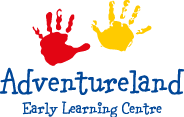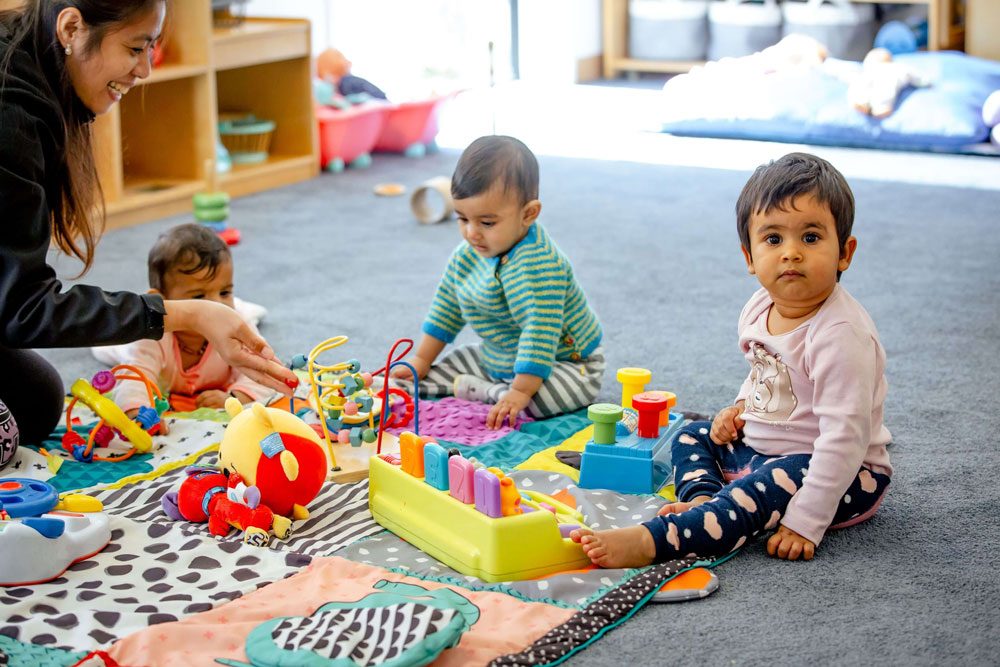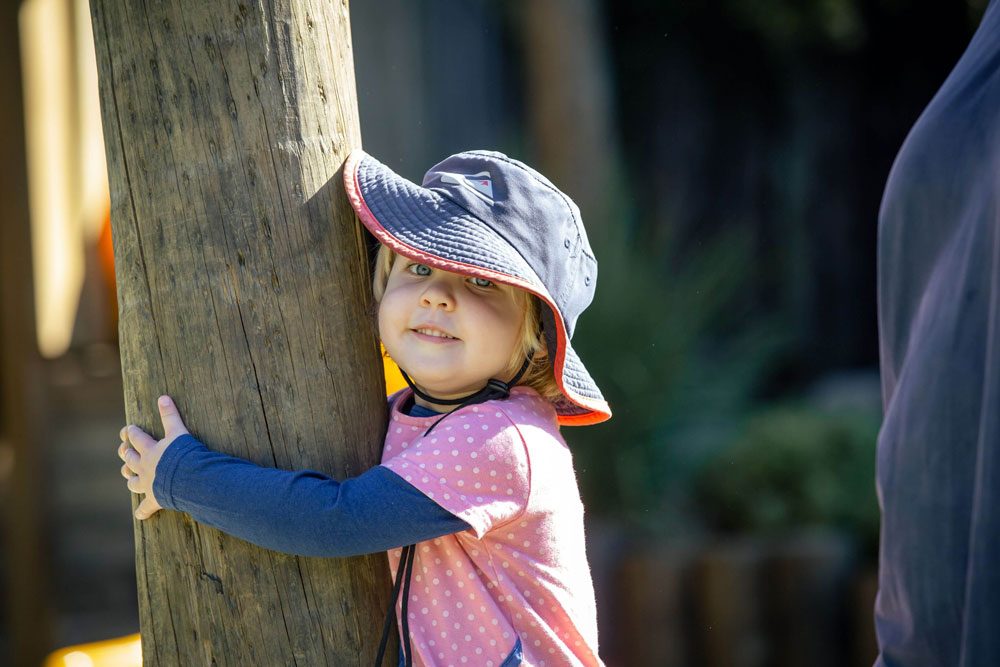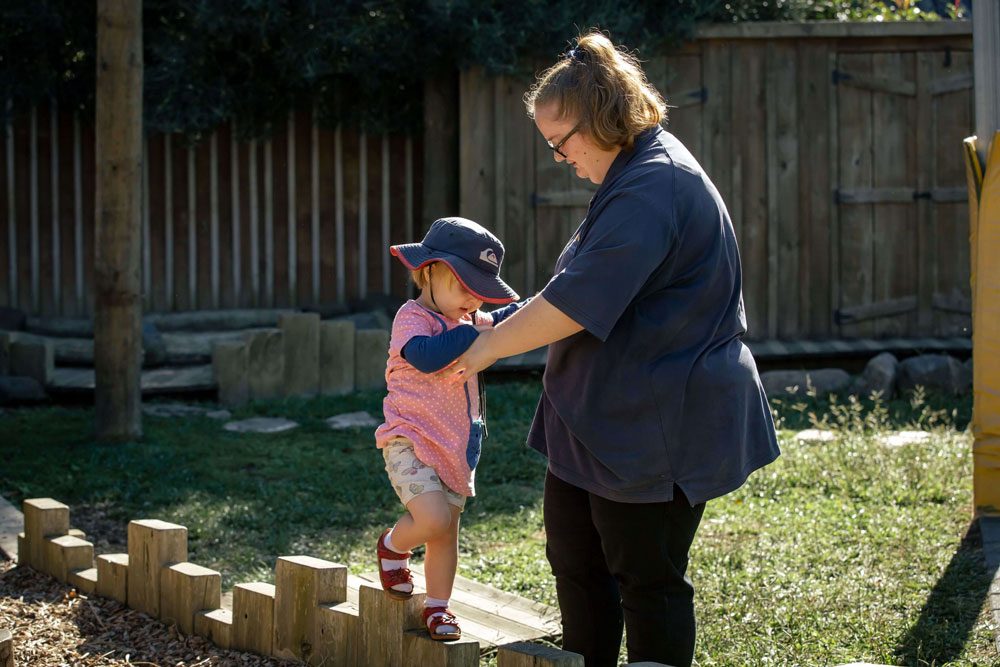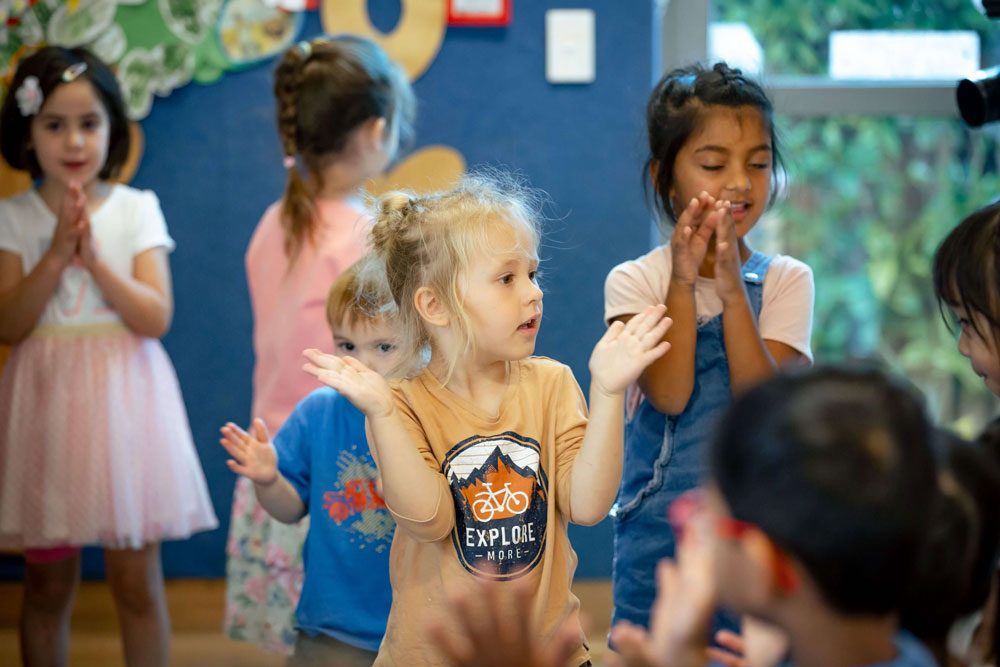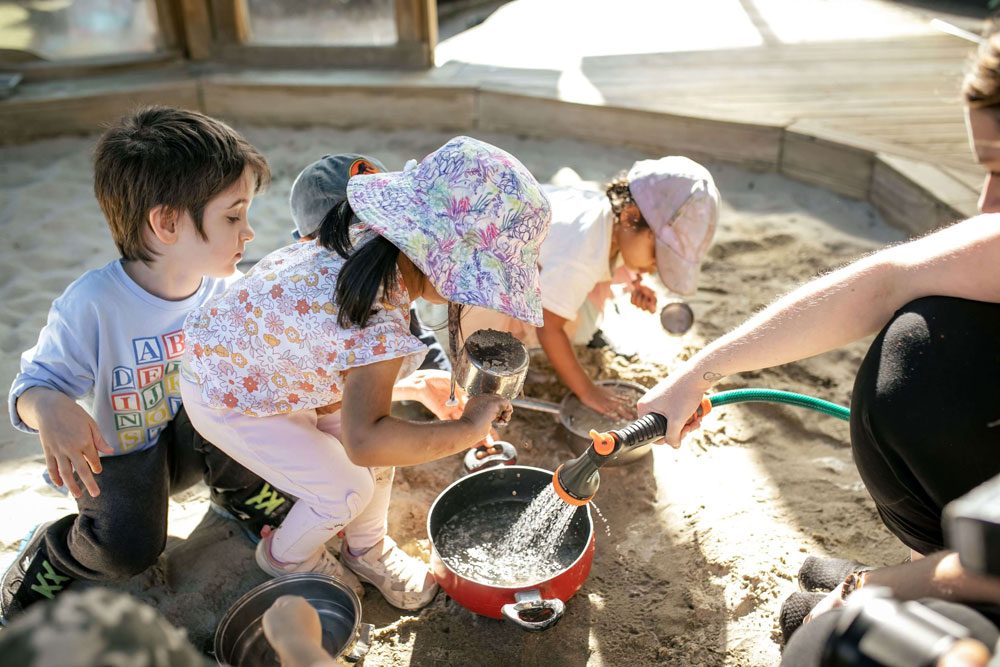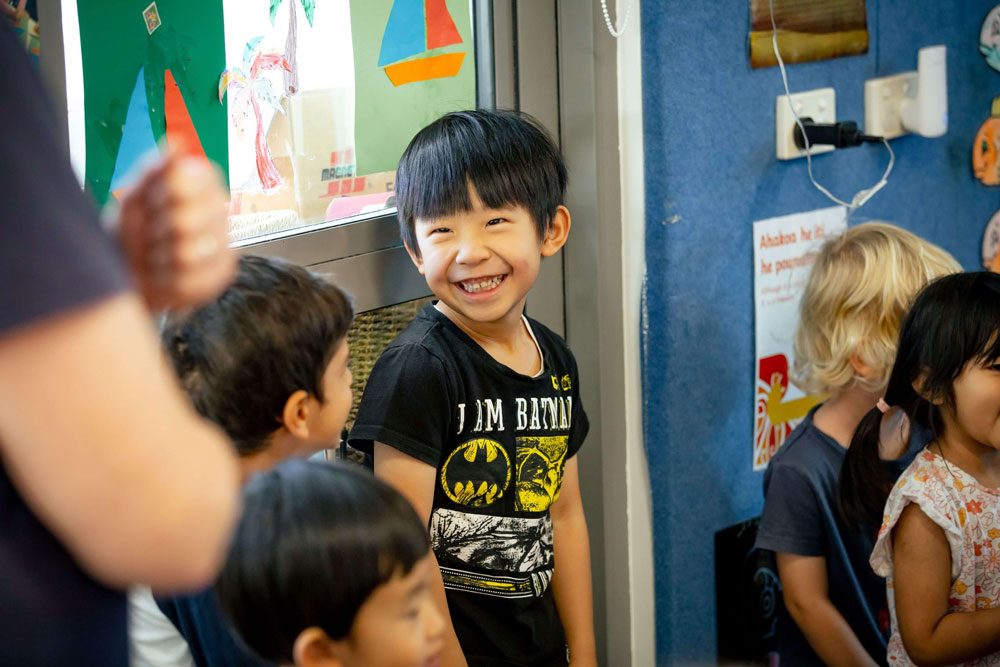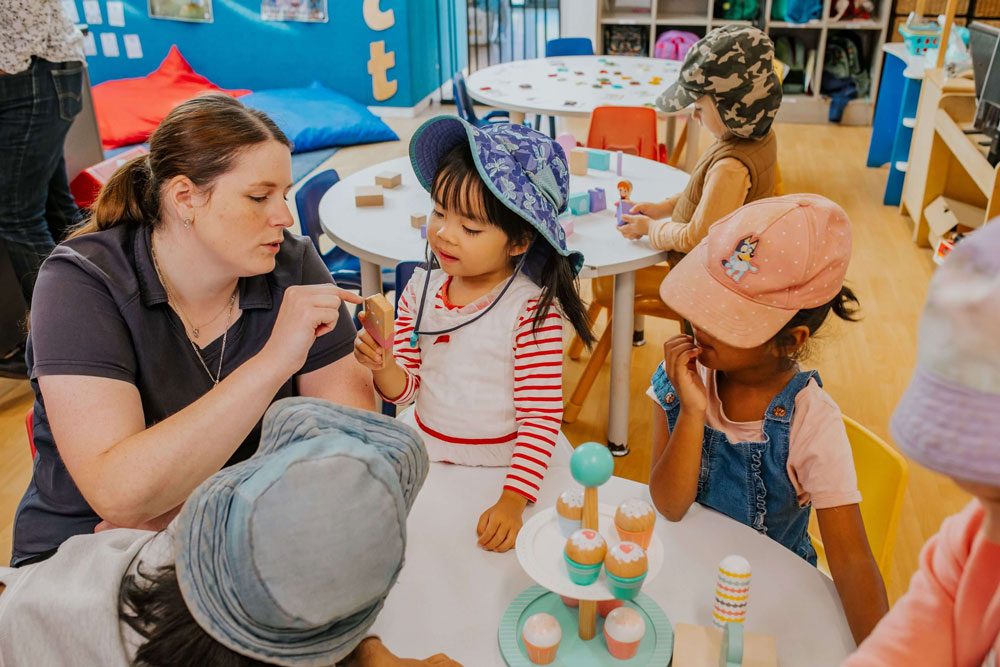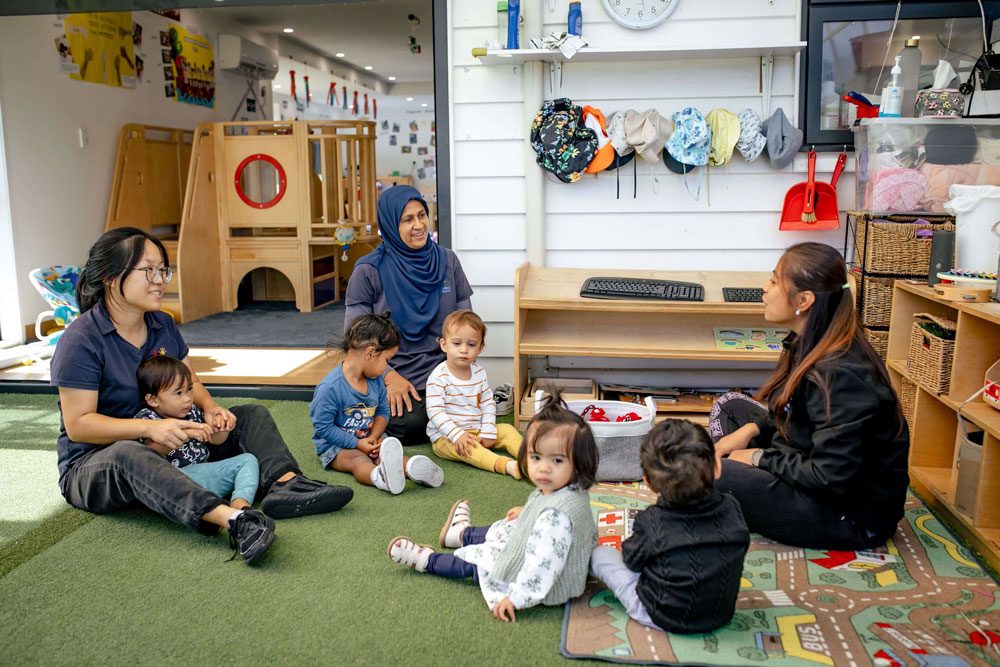Our educators work alongside our children to research, create, discover, play and inquire within a diverse range of learning experiences initiated by and tailored to each child’s stage of development and their personal interests.
Our nursery programme
Our nursery (3 months-2 years) provides a nurturing environment, where children feel safe to explore and discover. The first two years of life is a time for rapid growth and development, where children are building the foundation for their future learning.
Children benefit when their routines and experiences at home are reflected in their early education and care environment. Our nursery programme is structured to support the routine of every child.
Our toddler programme
New discoveries and curiosity stamp the way for toddlers who are eagerly learning about their sense of self and their surroundings.
Our toddler programme offers your child with the platform to investigate their own learning and branch into topics that interest them and their development. The programme is continually expanded upon to keep every child engaged and to guide their own direction of learning.
Why our nursery and toddler programme stand out?
Children from 3 months to 2.5 years require nurturing development and responsive care. We go the extra mile to ensure that the individual needs of your baby and toddler are met. We do this by:
- High teacher to child ratio.
- Flexibility to fit in with the routine of your baby or toddler.
- Flexibility to fit in with your culture & beliefs.
- Daily diary and focus on communication.
Our pre-school programme
The pre-school programme takes a holistic approach to children’s learning and development and provided by the the people, resources and experiences at Adventureland. The learning environment integrates education and care, and includes activities that are planned, and spontaneous.
The Adventureland pre-school programme includes…
- Core preschool curriculum (resources, areas of play),
- Emergent preschool curriculum (responding to children’s ideas and interests), and
- Negotiated preschool curriculum (resulting from discussion).
The programme is enhanced and developed through meaningful experiences and reciprocal responsive relationships, within the context of the children’s family, culture and community.
Working with you…
We understand how important it is to be a part of your child’s learning journey.
We record your child’s learnings in their individual portfolios that are always available for children and parents. We encourage parents to take these home to share with their families and to contribute their views. These portfolios also provide an effective assessment and evaluation practices inform our planning as they record the development of every child. This provides an environment which is positive, inclusive and responsive to each child.
We also invite parents to contribute their ideas and interests to the programme through informal chats, appointments and planned parents’ events.
Our preschool curriculum priorities
Children’s learning is viewed in the light of the strands and principles of Te Whariki and the national preschool curriculum framework.
The two key strands of Te Whariki that we emphasise are wellbeing and belonging. Children need to feel safe, secure and that they belong. This then gives them the confidence to explore, communicate and contribute to their learning. Our centre, like the All About Children group, is multi-cultural so we feel a sense of belonging is important.
These curriculum priorities of wellbeing and belonging are visible in practice in many ways…
Belonging
The children play an active part in the running of the programme and the planning of the programme is based around children’s particular interests.
They develop skills in caring for the environment such as cleaning, fixing and gardening. They help out with self-care skills and our young children help to arrange and put things away in the right places.
The children have an understanding of the routines and regular events of the early childhood setting. They develop capacities to predict and plan from the patterns and regular events that make up the day, and an understanding of the consequences of stepping beyond the limits of acceptable behaviour.
Wellbeing
There are a number of things we support children to develop around wellbeing. For example, knowledge of how to keep themselves healthy, self-help and self-care skills for eating, drinking, food preparation, toileting, resting, sleeping, washing and dressing.
We want them to develop an increasing ability to determine their own actions and make their own decisions. And to grow in confidence and ability to express their emotional needs. They also need to trust that their emotional needs will be responded to. It’s also important for them to feel confident that they can participate and take risks without fear of harm.
We support children to learn respect for rules around harming others and the environment, and an understanding of the reasons for such rules. Plus, respect for other cultures and backgrounds.
This information is shared with parents by newsletter, via Infocare, Daily Diary, parents evenings and functions. Parents are encouraged to have a voice on planning which fosters belonging, and we welcome open communication and feedback.
